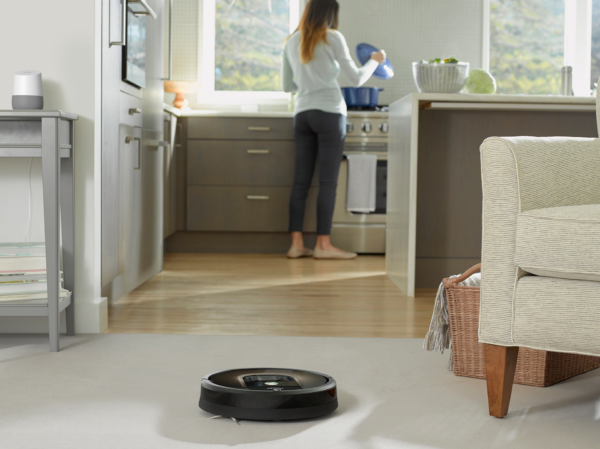
When you surf the Web, where you go online is tracked. The same when you drive around using Google Maps on your Android phone. Just check your phone’s log to see where you have been.
What you do at home, however, is still a bit of a mystery to technology companies, though not for long.
That’s fast changing with smart devices such as the Amazon Echo personal assistant, home sensors and even a smart vacuum now actively collecting and potentially sharing that information.
The latest headline that should worry you is iRobot’s plans to possibly sell map data of your home collected by its Roomba robot vacuum cleaners as they suck up dirt each day.
These automated workers build maps to clean your home more effectively and efficiently, the company said, in reports today. And it could one day sell this data to enable devices in a smart home to work better, it added.
Who this data will be sold to is unknown for now, though the likes of Amazon, Google or Apple could be interested, according to iRobot’s chief executive Colin Angle.
For users, the question is not whether the robot collects actively information – we know that already – but how its maker handles, secures and uses it.
Having one’s online activities tracked by a Web browser can be distressing to some users. However, with your home mapped out and possibly exposed online, you might be even more worried about having your privacy compromised.
What could possibly happen? For example, you would not want the robot to keep track of when you are at home (when the lights are on).
The Roomba vacuum cleaners may not track that now, but the idea is not far fetched for other smart home sensors, say, air conditioners that can detect presence.
The thing about these connected devices that are turning up in homes at a rapid pace is that many are not as secure as PCs or phones, which undergo regular patches and updates, given the experience over the past decade.
Okay, popular models of these smart home devices may be updated more frequently but what happens to less popular makes from companies that go out of business? Or models that are discontinued, along with the technical support?
That could mean a potential security hole waiting to be exploited. A smart kettle, for example, can be hacked. A smart vacuum too, if it is not updated and secured. Think of the smart door locks, surveillance cameras and TVs that get connected and are then forgotten.
They could be a backdoor to your home network or may be turned into zombie machines to launch a distributed denial of service (DDoS) attack against other targets, like what happened last year.
For consumers, convenience and privacy are often at opposite ends of the spectrum. Give up some data about yourself and it keeps Google services like e-mail and maps working for free.
With smart homes, the same questions have to be asked by users. What type of data would you want to share? How far would you want to go to get the convenience of smart devices? What should you ask of smart home device makers?
Perhaps more pressing is whether you can opt out. iRobot has said nothing will be done without the owner’s consent.
Yet, is there an option to continue using the robot without this data collection or sharing? Would other robotic workers at home have the same option in future?





